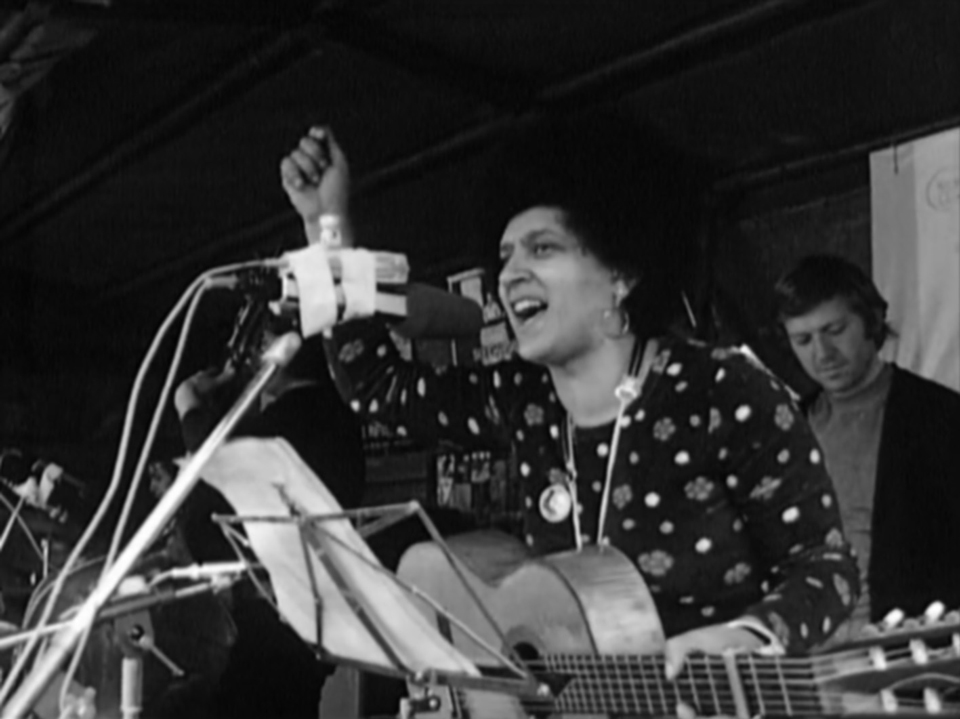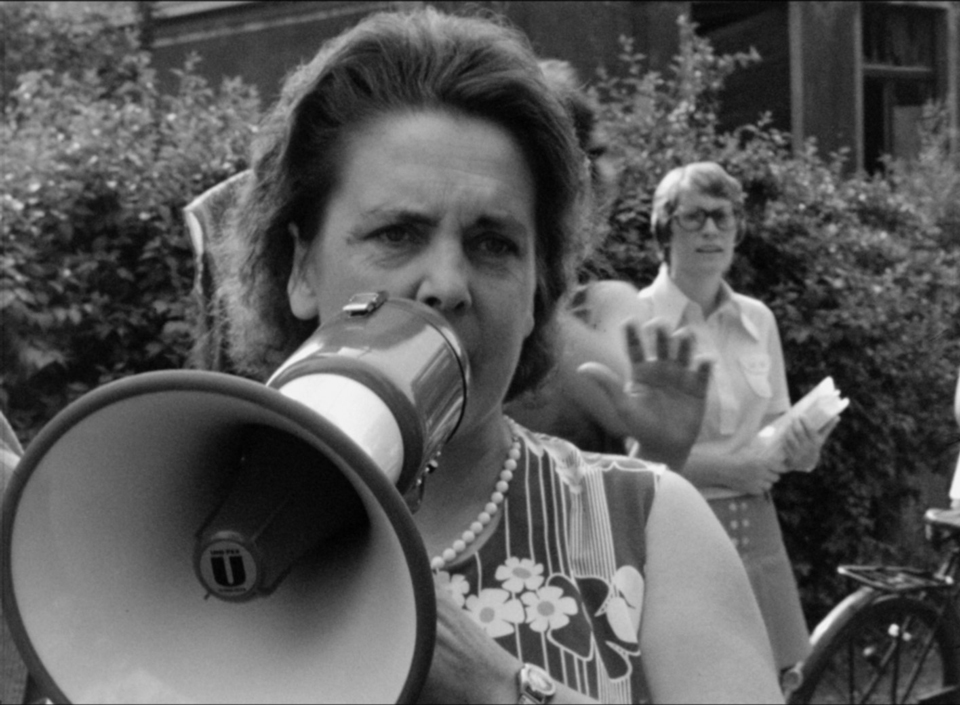FRG 1975/76 | Directors: Edith Marcello (former Schmidt), David Wittenberg | b/w | 16mm | 67 min | german OV | DFF – Deutsches Filminstitut & Filmmuseum
On 10 March 1975, industrial action history was made in the small Westphalian town of Erwitte: Employees of the local Seibel & Söhne cement factory occupied the plant in the face of threatened dismissals. It was one of the first company occupations in West German history. The occupation led to an avalanche of lawsuits in the months and years that followed, as civil property rights were challenged. Edith Marcello and David Wittenberg documented this labour struggle in close collaboration with the workers and their families; the conflict initiated the strong politicisation of the cement workers' wives, who began to question their traditional roles. Marcello/Wittenberg also arranged for the film and their previous two strike films DER KAMPF DER LIP-ARBEITER and PIERBURG: IHR KAMPF IST UNSER KAMPF to be distributed by Mai-Film, in order to promote publicity and solidarity. In late 1977, they wrote to their friends in Erwitte: "[...] Let us hope, without deluding ourselves, that, together with many others, we will find better solutions to the difficult problems we face, and that we will find them in conditions that truly deserve to be called humane and free." (Gaby Babić, 2023)


| Acronyms | |
|---|---|
| amer. | American English |
| b/w | Black and white |
| OV | Original version |
| SUB | Subtitles |
| +SUB | electronic live subtitling (below the image) |
| INT | Intertitles |
| Countries | |
|---|---|
| AT | Austria |
| FRG | Federal Republic of Germany (historic) |
| BLR | Belarus |
| DE | Germany |
| CAN | Canada |
| GDR | German Democratic Republic (historic) |
| EGY | Egypt |
| FR | France |
| GB | Great Britain |
| URY | Uruguay |
| BRA | Brasil |
| SWE | Sweden |
| UKR | Ukraine |
| PL | Poland |
| IDN | Indonesia |
| PRT | Portugal |
| HRV | Croatia |
| ECU | Ecuador |
| HUN | Hungary |
| AUS | Australia |
| IT | Italy |
| MEX | Mexico |
| IND | India |






